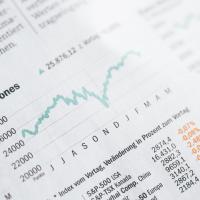Home > Investment Guide > Real Estate Investing
The Risks and Benefits of Investing in Property
If you have some extra capital sitting around but the idea of throwing it into the stock market fills you with terror, you are not alone. The economic recession and the constant ebbing and flowing of the market has many casual investors looking elsewhere, unwilling to risk their hard-earned money on something that’s so hard to predict. Many of these folks end up investing in real estate. Some would argue that this method is just as susceptible to economic strife, and many property owners did see dips in the value of their investment over the last several years. But many of those properties are already recovering, and since people need homes no matter what’s happening in the economy, real estate is the perfect investment for those willing to stick around for the long haul. As with any investment, however, problems can arise. Here’s a quick look at some of the risks and benefits of investing in property.
One of the biggest benefits is that you can put your new investment to work earning you money almost right away. Some people invest in homes in order to renovate them and flip them along to the next buyer. In this case you’ll be in and out, having turned a tidy profit in just a couple of months. Other investors hang on to the properties they purchase, instead choosing to lease them out to tenants. You can often start earning income from rentals the very month you purchase the property, and in many cases you’ll receive enough money to cover the mortgage payments or the property taxes. If you follow this avenue for several years, eventually that investment property will provide you with an income stream that’s consistent from one month to the next.
There are some other financial benefits as well. If you have trouble saving money when it relies on sheer willpower and budgeting software, a home is an automatic savings plan. You’ll have to make your mortgage payment every single month, and once you start paying down the interest on your loan you begin increasing your share of the value of the home. The longer you pay, the more of the house belongs to you. Many people purchase a home early in life and end up using that very purchase to fund their retirement decades later. On top of that, you’ll find some serious tax benefits that you can claim starting in the year you purchase the property. There’s interest you can write off on any money borrowed for a mortgage, and you can also deduct many of the expenses and some amount of depreciation every single year.
That’s all well and good, but you have to understand that there are some risks as well. If your goal is to rent the home but you chose a poor area for renters, you could see the property sit empty for months at a time. You’ve got to read the local market, and make sure you are purchasing in an area where there is demand for your type of rental property. You could also end up with terrible tenants who dodge the rent or trash the place. Then you’ll be dealing with your state’s laws pertaining to the landlord-tenant relationship, and they won’t always lean in your favor.
There are financial risks as well. Experts continue to praise American investment properties, but you’ll never be certain that the recession that so decimated the real estate market won’t return. That could leave you with a property that’s suddenly worth far less than what you paid for it. You’ll lose money by selling, and you won’t be able to recoup your initial investment. On the flip side, if values skyrocket so could the interest rate on your loan. If it isn’t locked in, you could find yourself suddenly having to come up with far more money each month than what you had planned for. It could backfire, leaving you taking a loss on the house or even facing bankruptcy. Just be well aware of the risks and potential rewards you are walking into on a project by project basis, and bring in professional help as necessary to inform your decisions.
More to Read:
Previous Posts:




